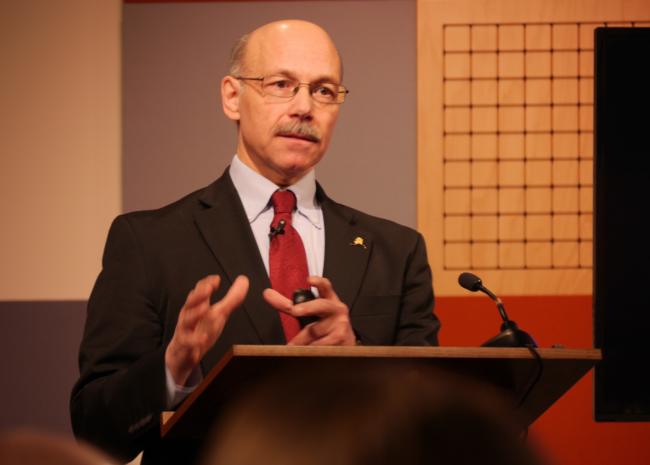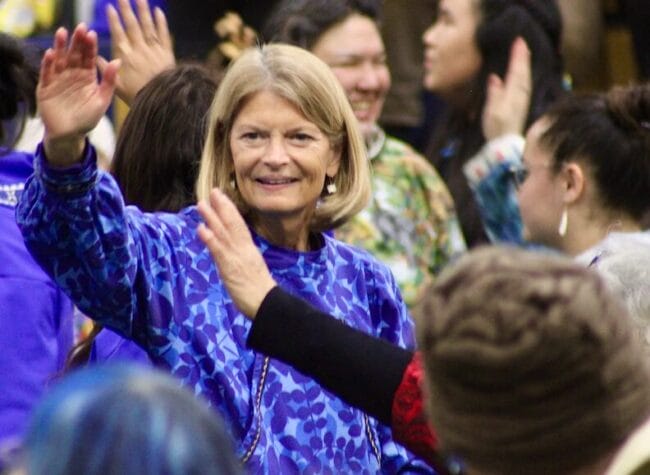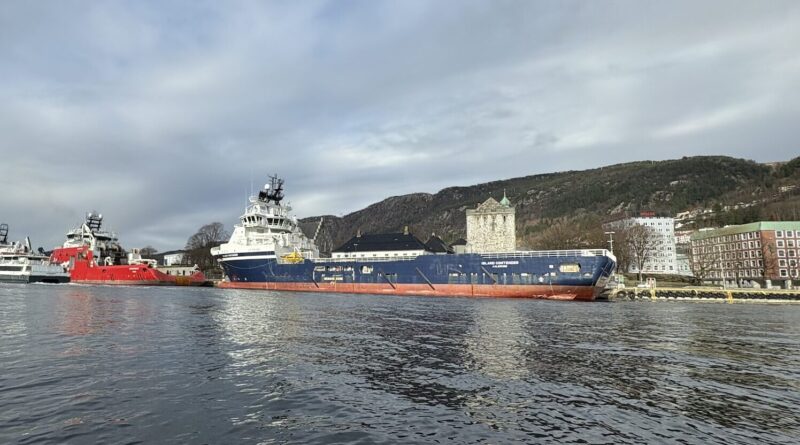As Trump eyes Greenland and Arctic resources, America’s ambassadorship for the region goes unfilled
Five weeks before Election Day, at an evening ceremony at the office of the U.S. Department of State, America’s first-ever Arctic ambassador was sworn into his new job.
Barely 100 days later, on Jan. 20, Mike Sfraga resigned — departing his post, like other ambassadors, as Donald Trump took power.
Now, Sfraga’s position remains unfilled. And Alaskans and others tracking America’s stance toward the Arctic are waiting to see when, or if, the new administration will offer a clear vision or plans for the region that the U.S., its allies and rivals are increasingly eying as a zone for commerce and military activity.
“It’s feeling very quiet,” said Diane Hirshberg, who leads a research institute at University of Alaska Anchorage and is academic vice president at an international network of schools called University of the Arctic. “We’re just in this weird land of uncertainty.”
At a recent working group meeting of an international commission called the Arctic Council, Hirshberg said, the American government representative shared nothing, “other than that the U.S. reserves the right to comment at a later date.”
Experts say that Trump’s outspoken desire to annex Greenland makes clear that he’s aware of the Arctic’s growing strategic value. But they also say that his distrust of traditional European alliances and his targeting of research institutions risk undermining the nation’s interests in the region.

“There are other nations questioning us,” Sfraga said at an Alaska legislative hearing this month. “Every one of our allies in the North and elsewhere, they’re questioning how committed we are.”
Republican U.S. Sen. Lisa Murkowski, who’s long prodded the federal government to develop its Arctic policy, said she thinks the new administration appreciates the significance of the region for its natural resources and importance to American national security.
But she said she’s pushing for that awareness to be backed up with qualified personnel — new appointees to Arctic-focused positions like the ambassador job.
“At some of these Arctic conferences, I’m there,” she said in an interview. “But the U.S. delegation has to be more than just Lisa Murkowski.”
Former President Joe Biden created the Arctic ambassador position through an executive action, and it’s not set out in law — a fact that Murkowski, via legislation she introduced earlier this year, hopes to change.

She said she’s also submitted names to the Trump administration to consider for the post and is concerned that if the decision is delayed, the new ambassador nominee could end up being a campaign donor chosen “as, kind of, a political favor.”
Murkowski said she’d love to see Sfraga reappointed to the position.
Biden originally nominated Sfraga, an Alaskan geographer who’d worked at a think tank and in Alaska’s university system, to the ambassadorship in early 2023.
Murkowski recommended Sfraga for the post and lobbied for his confirmation.
But it took more than 18 months for the U.S. Senate to take an up or down vote. Some Republican senators, led by Idaho Republican James Risch, criticized Sfraga’s relationships with officials and institutions from China and Russia.
Sfraga said in an email that filling his old post is in America’s best interest.
“The United States requires a Senate-confirmed ambassador so we can inform, influence and appropriately lead Arctic-related issues and policies throughout the region, clearly articulate U.S. Arctic goals and objectives, and ensure our policies and efforts are coordinated and advanced at home,” he said.
Asked whether he’d take the job back if chosen by Trump — as suggested by Murkowski — Sfraga thanked the senator for her “unwavering support.”
“It is now time to consider other opportunities to advance U.S. and allied partners’ interests in the Arctic, and Alaska’s unique role in the region’s future,” he said.
Alaska’s sole member of the U.S. House, Republican Nick Begich III, said in an emailed statement that an Arctic ambassador supports a strong presence in the region, “which is vital for national security.”
“I will continue to work with the executive branch and members of the Alaska delegation to advocate for an Arctic policy that includes leadership staffing as a component of our national security strategy,” Begich said.
The State Department, in an emailed statement to Northern Journal, did not directly answer a question about if and when the new administration plans to replace Sfraga. But it did say that the Office of the Ambassador-at-Large for Arctic Affairs “remains funded and operational.”
That’s in contrast to the Wilson Center — a 55-year-old think tank that once employed Sfraga when he was the founding director of the center’s Polar Institute.
The center, which focuses on foreign policy, has been almost entirely shut down by the new administration, with more than 100 employees placed on leave and just a handful of congressionally mandated positions remaining, according to the New York Times. The Polar Institute’s current director did not respond to a request for comment.
At the U.S. Department of Defense, meanwhile, the administration has filled one top Arctic-focused position. Last month, Steven Schleien, a longtime department official, was named deputy assistant secretary for Arctic and global resilience — with responsibilities that include Arctic security, ocean issues and critical minerals.
One other person that experts see as a potentially influential voice on the administration’s Arctic policy is Julia Nesheiwat.
Nesheiwat currently has no formal role in the administration. But she’s a former homeland security adviser to Trump and a former member of the U.S. Arctic Research Commission, and her husband, Mike Waltz, is Trump’s national security advisor.
Nesheiwat recently traveled with Waltz, Vice President J.D. Vance and other top administration officials to Greenland. She also held a meeting with Republican Alaska Gov. Mike Dunleavy at an energy conference in Texas last month.
Murkowski said she’s spoken about Arctic policy with Marco Rubio, the secretary of state and her former U.S. Senate colleague.
She also sent the president and other top administration officials a letter last month outlining her Arctic-related priorities — including the appointment of a special presidential assistant focused on the region, and the creation of a new deputy assistant secretary for Arctic affairs at the State Department.
Murkowski, who’s publicly clashed with Trump at times, acknowledged that some in the new administration “would love to deep-six anything that I might suggest.”
“But I know that you have people who are genuinely interested in advancing good policy,” she said. “I think they’re looking for suggestions.”
Nathaniel Herz welcomes tips at natherz@gmail.com or (907) 793-0312. This article was originally published in Northern Journal, a newsletter from Herz. Subscribe at this link.

